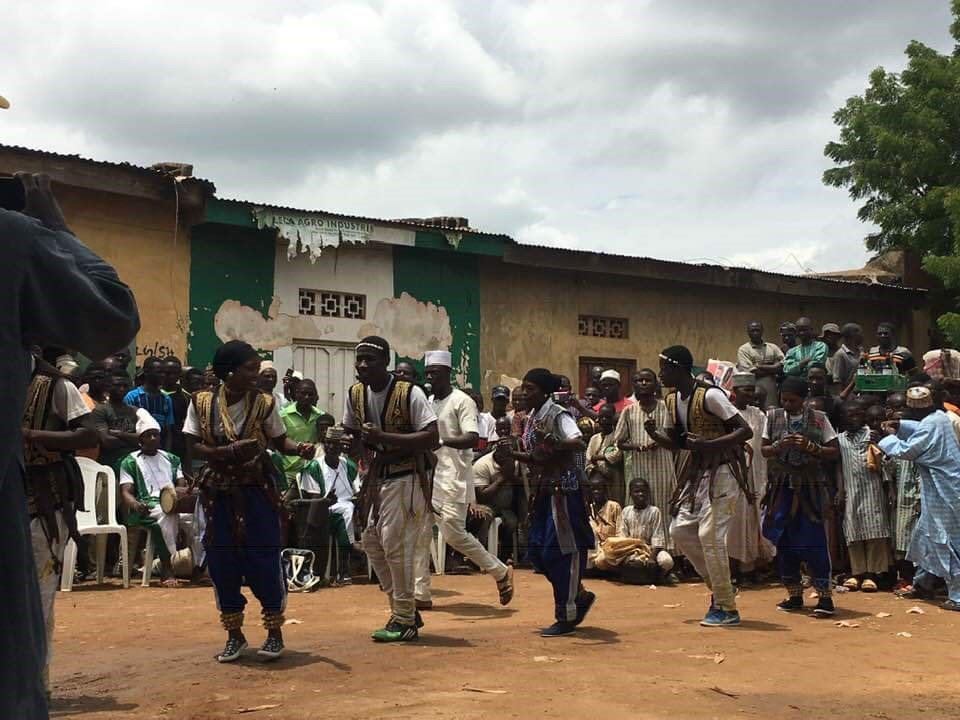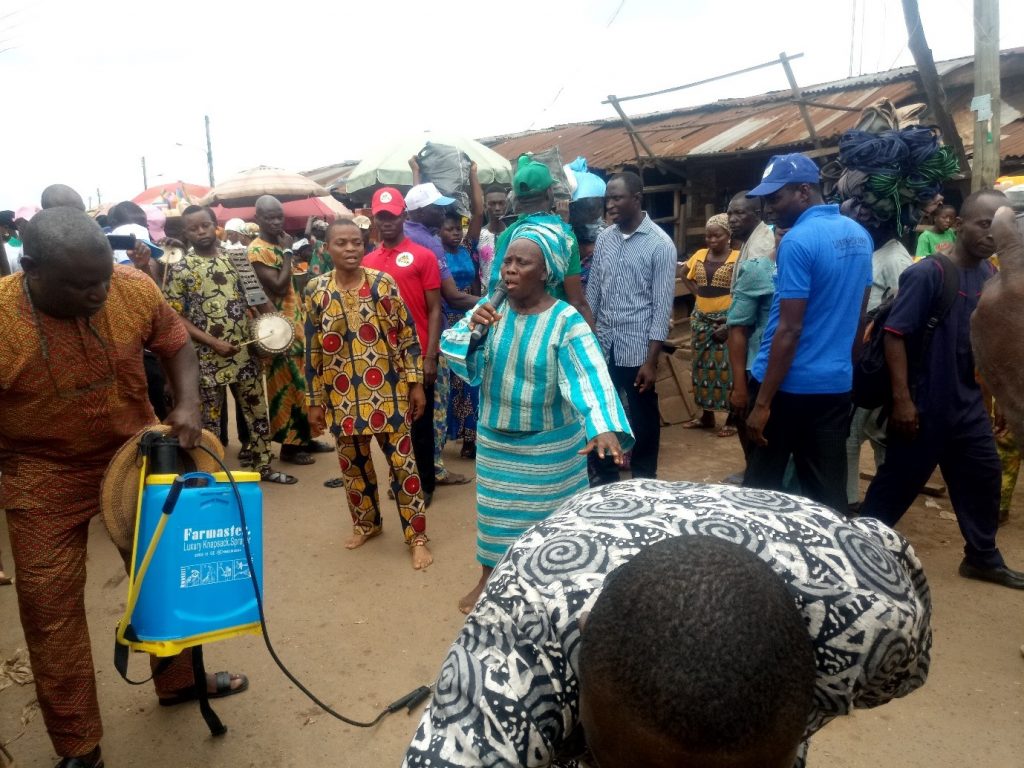List of STMA supported publications for sub-Saharan Africa for 2019
Amondo, E., Simtowe, F., Rahut, D.B., Erenstein, O., 2019. Productivity and production risk effects of adopting drought-tolerant maize varieties in Zambia. International Journal of Climate Change Strategies and Management 11, 570-591. https://doi.org/10.1108/IJCCSM-03-2018-0024
Awata, L. A. O., Ifie, B. E., Tongoona, P., Danquah, E., Jumbo, M. B., Gowda, M., Marchelo-D’ragga, P. W., Sitonik, C., & Suresh, L. M. (2019). Maize lethal necrosis and the molecular basis of variability in concentrations of the causal viruses in co-infected maize plant. Journal of General and Molecular Virology, 9(1), 1-19.
Awondo, S.N., Kostandini, G., Setimela, P., Erenstein, O., in press. Multi-Site Bundling of Drought Tolerant Maize Varieties and Index Insurance. Journal of Agricultural Economics. https://doi.org/10.1111/1477-9552.12344
Buchaillot MB, Gracia-Romero A, Vergara-Diaz O, Zaman-Allah M, Tarekegne A, Cairns JE, Prasanna BM, Araus JL, Kefavuer SC. 2019. Evaluating maize genotype performance under low nitrogen conditions using RGB UAV phenotyping techniques. Sensors 19, 1815.
Chaikam V, Gowda M, Nair SK, Melchinger AE, Boddupalli PM. Genome-wide association study to identify genomic regions influencing spontaneous fertility in maize haploids. Euphytica. 2019 Aug 1;215(8):138.
Chaikam V, Molenaar W, Melchinger AE, Boddupalli PM. Doubled haploid technology for line development in maize: technical advances and prospects. Theoretical and Applied Genetics. 2019:1-7.
Chaikam, V., Gowda, M., Nair, S.K. et al. (2019) Genome-wide association study to identify genomic regions influencing spontaneous fertility in maize haploids Euphytica (2019) 215: 138. https://doi.org/10.1007/s10681-019-2459-
Katengeza, S.P., Holden, S.T., Lunduka, R.W., 2019. Adoption of Drought Tolerant Maize Varieties under Rainfall Stress in Malawi. Journal of Agricultural Economics 70, 198-214. https://onlinelibrary.wiley.com/doi/abs/10.1111/1477-9552.12283
Lunduka, R.W., Mateva, K.I., Magorokosho, C., Manjeru, P., 2019. Impact of adoption of drought-tolerant maize varieties on total maize production in south Eastern Zimbabwe. Climate and Development 11, 35-46. http://dx.doi.org/10.1080/17565529.2017.1372269
Nair S, Chaikam V, Gowda M et al. Genetic dissection of maternal influence on in vivo haploid induction in maize . The Crop Journal. 2019 (in press)
Simtowe, F., Amondo, E., Marenya, P., Rahut, D., Sonder, K., Erenstein, O., 2019. Impacts of drought-tolerant maize varieties on productivity, risk, and resource use: Evidence from Uganda. Land Use Policy 88, 104091. https://doi.org/10.1016/j.landusepol.2019.104091
Simtowe, F., Marenya, P., Amondo, E., Worku, M., Rahut, D.B., Erenstein, O., 2019. Heterogeneous seed access and information exposure: implications for the adoption of drought-tolerant maize varieties in Uganda. Agricultural and Food Economics 7, 15. https://doi.org/10.1186/s40100-019-0135-7
Sitonik, C., Suresh, L.M., Beyene, Y. et al. (2019) Theor Appl Genet (2019) 132: 2381. Genetic architecture of maize chlorotic mottle virus and maize lethal necrosis through GWAS, linkage analysis and genomic prediction in tropical maize germplasm https://doi.org/10.1007/s00122-019-03360-x
Tigist Mideksa Damesa, Jens Möhring, Manje Gowda, Yoseph Beyene, Kassa Semagn, Hans-Peter Piepho, 2019 Comparison of weighted and unweighted stage-wise analysis for genome-wide association studies and genomic selection – Crop Science
Wegary, D., Teklewold, A., Prasanna, B.M. et al. (2019) Molecular diversity and selective sweeps in maize inbred lines adapted to African highlands. Sci Rep 9, 13490 (2019) https://doi:10.1038/s41598-019-49861-z
Wender et al 2019, Performance and Yield Stability of Maize Hybrids in Stress-prone Environments in Eastern Africa, The Crop Journal (Accepted)
Araus JL, Kefauver SC, Zaman-Allah M, Olsen, Cairns JE. 2018. Phenotyping: New Crop Breeding Frontier. In: R. A. Meyers (ed.), Encyclopedia of Sustainability Science and Technology, Springer Science+Business Media, LLC, part of Springer Nature 2018. https://doi.org/10.1007/978-1-4939-2493-6_1036-1
Das B, Atlin GN, Olsen M, Burgueño J, Tarekegne A, Babu R, Ndou E, Mashingaidze K, Moremoholo L, Ligeyo D, Matemba-Mutasa R, Zaman-Allah M, San Vicente, Prasanna BM, Cairns JE. 2018. Identification of low N tolerant donors for maize breeding in sub-Saharan Africa. Euphytica 215, 80.
Yuan Y, Cairns JE, Babu R, Gowda M, Makumbi D, Magorokosho C, San Vicente F, Olsen M, Prasanna BM, Lu Y, Zhang Y. 2018. Genome-wide association mapping and genomic prediction analyses reveal the genetic architecture of grain yield and flowering time under drought and heat stress conditions in maize. Frontiers in Plant Science 9:1919.
Teklewolda H., Adam, R., Marenya, P. What explains the gender differences in the adoption of multiple maize varieties? Empirical evidence from Uganda and Tanzania. 2020. World Development Perspectives. https://doi.org/10.1016/j.wdp.2020.100206


